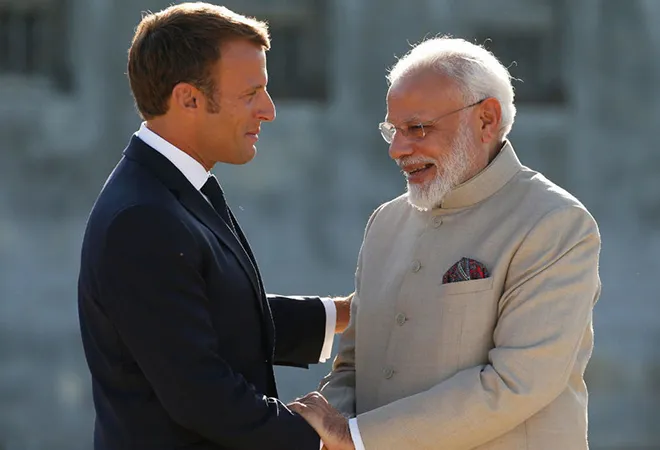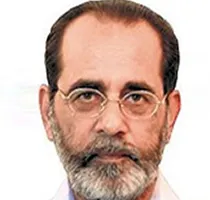Since the end of the Cold War, India has signed “Strategic Partnership” agreements with more than 35 countries. Among the earliest was the one with France, signed in January 1998, during President Jacques Chirac’s visit to India. Last week, the strength of this partnership was in evidence at the United Nations Security Council (UNSC) when China sought to raise the subject of Kashmir in an informal, closed door session, originally convened to discuss the situation in Mali. France, supported by Russia and the United States (US) and other non-permanent members, led the move to block the Chinese initiative.
India and France share a common trait of civilisational exceptionalism, and after the Cold War ended, both countries were quick to espouse the virtues of multipolarity. French discomfort with a unipolar system was clear when French foreign minister Hubert Vedrine described the US as a hyperpuissance. Visualising the changing geopolitics with focus shifting from Euro-Atlantic to Asia-Pacific, France decided on India as its preferred partner in the Indian Ocean. Even before India’s nuclear tests in 1998, France declared that the nation’s exclusion from the global nuclear order was an anomaly, and that needed rectification. After the nuclear tests, France displayed an instinctual understanding of India’s security compulsions. The strategic dialogue that began in 1998 has grown over the years to cover nuclear, space, defence, cyber security, intelligence-sharing and counter-terrorism cooperation. Bilateral military exercises between the three services, beginning with the navies in 2001, followed by the air forces in 2004, and the armies in 2011, have now became a regular feature.
Cooperation in the space domain began in the 1960s with French assistance to set up the Indian launch facility at Sriharikota, but languished in later years because of export controls. The dialogue helped restart this cooperation and the Indian Space Research Organisation and Centre national d’études spatiales now work on joint missions.
After the US cut off nuclear fuel supplies for Tarapur in 1984, France became the fuel supplier. Following the Nuclear Suppliers Group waiver in 2008, India and France signed a civil nuclear cooperation agreement providing the framework for building the French Extended producer responsibility reactors in India.
Regarding Kashmir, France maintains that it is a bilateral issue between India and Pakistan and, therefore, does not merit discussion in the UN. China had first raised Kashmir at Pakistan’s behest in August, shortly after Article 370 was abrogated and the state of Jammu and Kashmir was divided into two Union territories. On August 16, 2019, the UNSC held an informal closed-door session, the first time Kashmir had appeared on the agenda of the council after 1965. India’s stand that the developments in Kashmir were an internal matter received considerable support. An attempt was made again by China in December to take up the issue but finessed by France and other countries.
Pakistan’s foreign minister Shah Mahmood Qureshi had addressed a fresh letter on Kashmir to the UNSC in January, and this time China decided to introduce it into a previously scheduled meeting under the agenda provision of “Any Other Items”. French lead was quickly endorsed by the other permanent and a number of non-permanent members bringing the meeting to a closure. The Chinese action, which came after the informal summit between Prime Minister Narendra Modi and Chinese President Xi Jinping in October, makes it clear that China remains insensitive to India’s core concerns. The announcements on “strategic communications” that differences do not become disputes and the plans of holding 70 major events in the two countries to mark 70 years of establishment of diplomatic relations are unlikely to put a gloss on growing differences over China–Pakistan Economic Corridor, Belt and Road Initiative, Indo-Pacific, China’s veto on India’s membership of the NSG, and attempts to block the listing of Masood Azhar as a terrorist.
A close strategic partnership with Russia was forged during the Cold War, and it has stood the test of time. Yet there are occasional murmurs in Moscow about India’s growing proximity to the US, particularly in the Quad (Australia, Japan, US and India), which foreign minister Sergey Lavrov described as a “divisive concept” last week at the Raisina Dialogue in Delhi. India too has been blindsided by Russia’s new engagement with the Taliban and by extension, Pakistan. The strategic partnership with the US is more recent, but has developed strong roots with more than 50 bilateral dialogues. Beginning from scratch a decade ago, the US has also emerged as a key defence supplier. Yet, it is clear that US has its interests in the region when it comes to Pakistan, Iran and its negotiations with Taliban.
The test for a strategic partnership is not that there must be convergence on all issues; the test is that where there are differences, these are expressed in private and not publicly. This is where the India-France strategic partnership, nurtured over two decades, demonstrates its resilience.
This commentary originally appeared in Hindustan Times.
The views expressed above belong to the author(s). ORF research and analyses now available on Telegram! Click here to access our curated content — blogs, longforms and interviews.




 PREV
PREV


